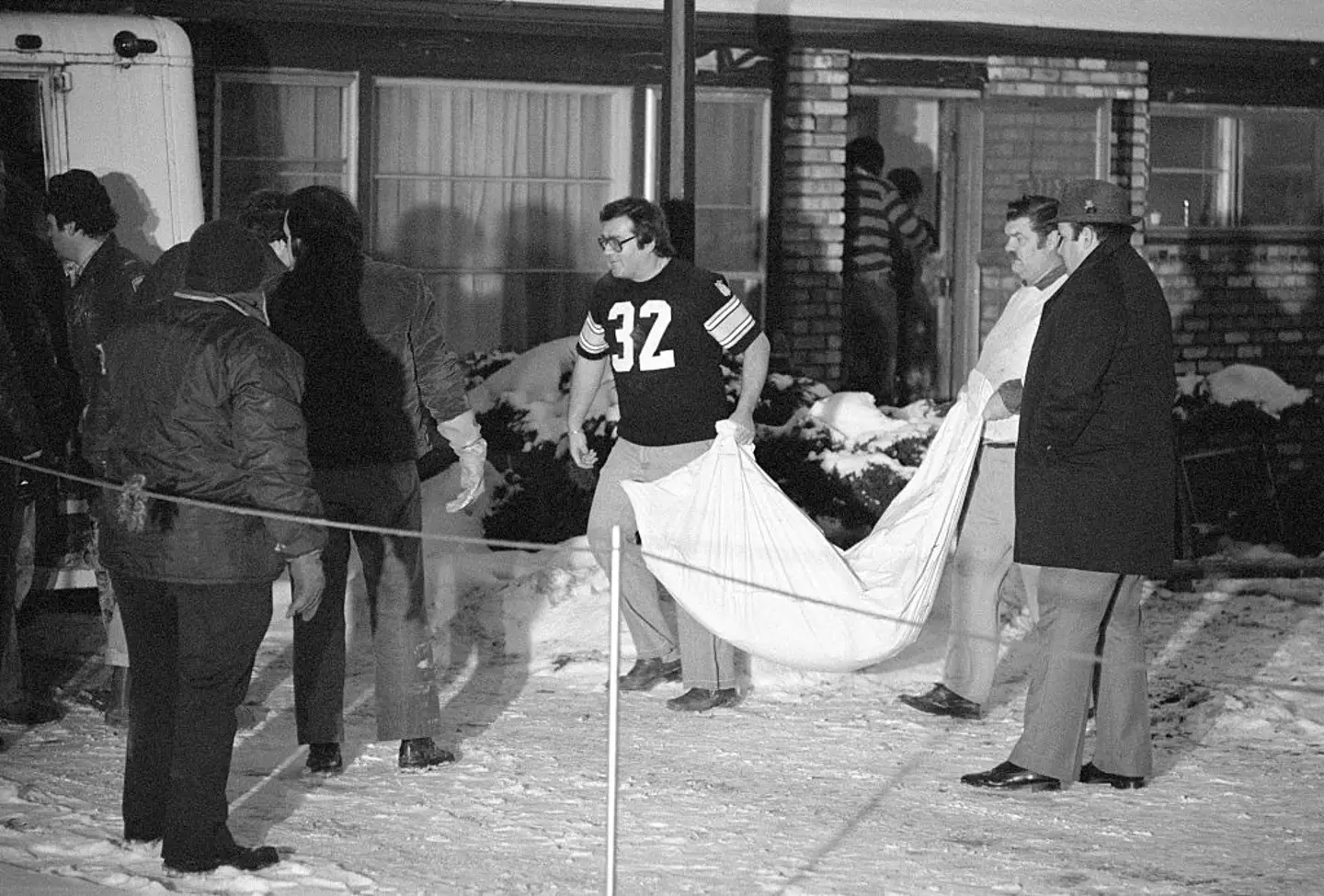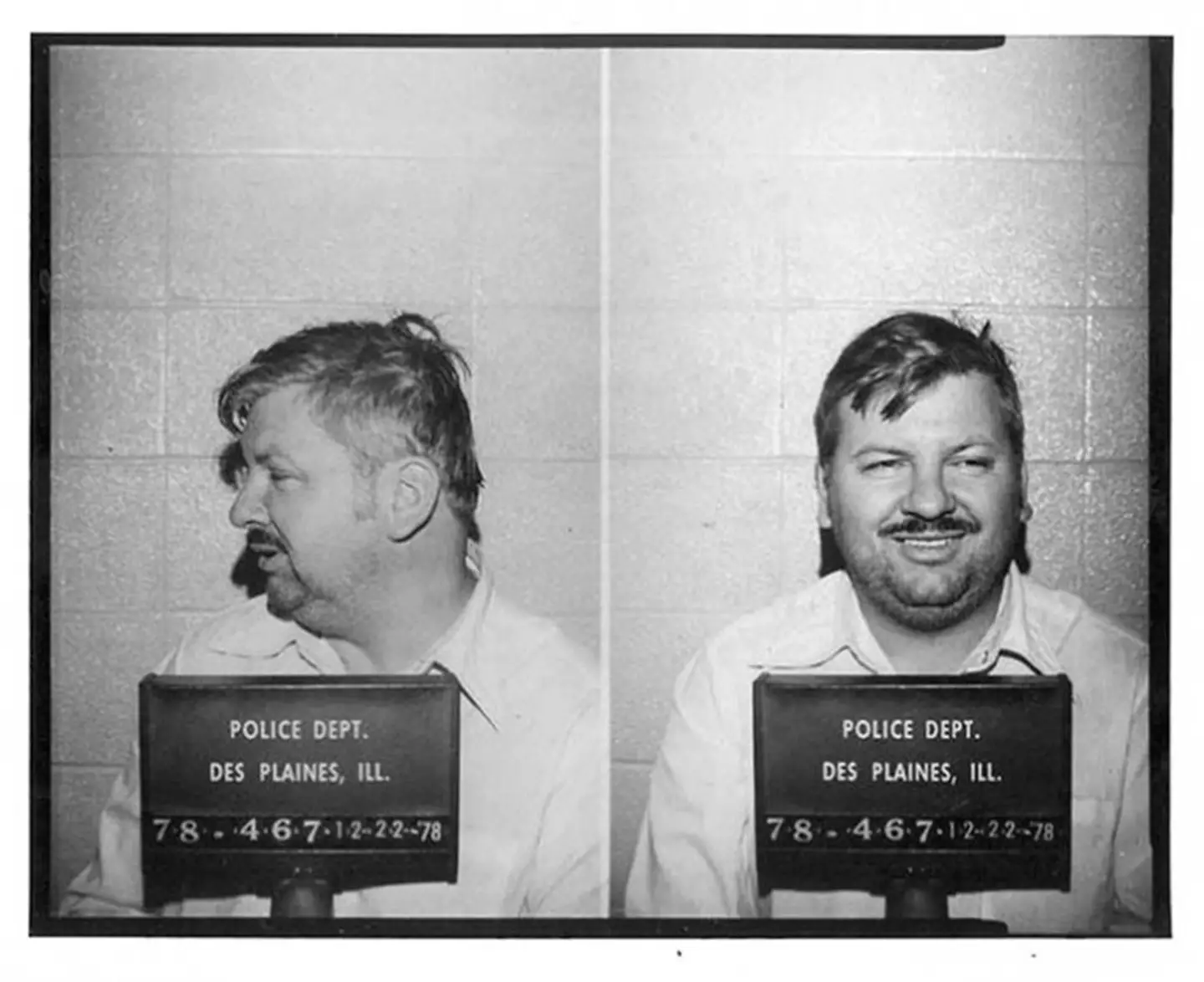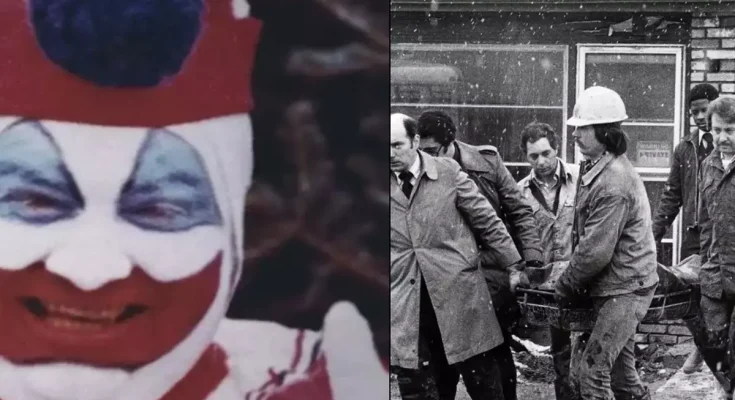Warning: This article contains details of torture and murder that some readers may find disturbing
American serial killer history is something that many are morbidly fascinated by, but the case of John Wayne Gacy is a very real tragedy that rocked a small community.
In a suburban town in Chicago, 15-year-old Robert Piest’s disappearance on 11 December, 1978 would open up a can of worms like no other, leading to detectives being traumatised by what they saw till this very day.
John Wayne Gacy, who would often dress up as a children’s clown called Pogo and was integrated into the inner circles of the community, had been harbouring a dark secret.
He was a killer, who had as many as 33 victims, most of whom were stuffed in the crawl space of his home.
How Gacy managed to get so many men and boys to his home was by telling them they needed help with ‘scientific research’, for which he would pay $50.
After he got them alone, he would either hold them at gunpoint or through manipulation, and would give them alcohol until they were drunk and then trick them into handcuffs.
Then, he would torture them, rape them and finally, perform his ‘rope trick’ which involved him strangling them to death with a length of rope.
Many of the people he set upon were either runaways or homosexual, which was taboo at that time.
One of his victims was the son of a Chicago officer who even begged inspectors not to release the details of his son’s sexuality to the public.
 John Wayne Gacy would attend children’s parties as Pogo the clown (Netflix)
John Wayne Gacy would attend children’s parties as Pogo the clown (Netflix)
Des Plaines inspector Rafael Tovar was on the case at the time with a team of 10 who worked tirelessly for six months clearing the bodies from Gacy’s home with their bare hands.
What they discovered would shake them so badly, and they can still recall the smell and sights from within the ground.
It was at the Norwood Park Township home that they found 29 bodies, some which were piled on top of each other in different stages of decomposition.
Through the initial search, they couldn’t find Piest, who was known to have followed the clown home on the day he went missing.
But when an officer could smell rotting flesh coming through the heating system which was linked to the underground crawl space, they knew they were on to something.
That’s when the force returned with a second warrant, and dug up the crawl space, where Tovar found a femur bone.
 Des Plaines inspector Rafael Tovar was scarred by what he saw at the house (Getty Images)
Des Plaines inspector Rafael Tovar was scarred by what he saw at the house (Getty Images)
He told The Sun Online: “It was a bone already so we knew it couldn’t have been Robert Piest because it had only been 10 days [since his disappearance].
“So then we kept digging and found a second femur – a left femur – and then we found a third left femur. By this point we’re thinking there’s a whole lot more here.”
After telling Gacy that they were going to dig up his whole crawl space, he immediately cooperated and drew them a map of where each body was so that they didn’t ‘dirty’ his carpets.
Tovar explained that when they were down there, ‘there was a putrid odour, unlike anything else’ and Gacy ‘had them all around the outer edges of the house and he had dug up some trenches. Some of them he put one on top of the other.’
He explained what the conditions were like in the basement for those six months of excavation: “It was very wet, very moist down there.
“You couldn’t dig with a shovel because we were afraid of breaking a bone or knocking some teeth out because that was the only way we were going to identify them, so you dug with a very small gardening tool and then you used your hands.
 Gacy tortured and murdered 33 boys and men (Bureau of Prisons/Getty Images)
Gacy tortured and murdered 33 boys and men (Bureau of Prisons/Getty Images)
“You couldn’t wear gloves because the moment you stuck your hands into the mud, you pulled your hand out and it would suck the gloves right off you. So, by that time, we just decided to go at it. We didn’t have all the equipment we have nowadays.”
One thing that stuck in his mind was a decapitated body, who’s head had been removed due to the way Gacy had strangled him.
The case still haunts Tovar and his old officer pals, who meet up each year for ‘therapy’ as the sondition of the bodies, and sights they saw took an immense toll.
He said: “It was a case of a lifetime. To me it meant he stopped killing more people and was made to pay for his sins.
“I was very proud and happy with all my colleagues who started with nothing and broke this case. But I saw the damage he did and I can’t forget… he was an evil b**tard.”
John Wayne Gacy died by lethal injection on 10 May, 1994, after spending 14 years on death row.



